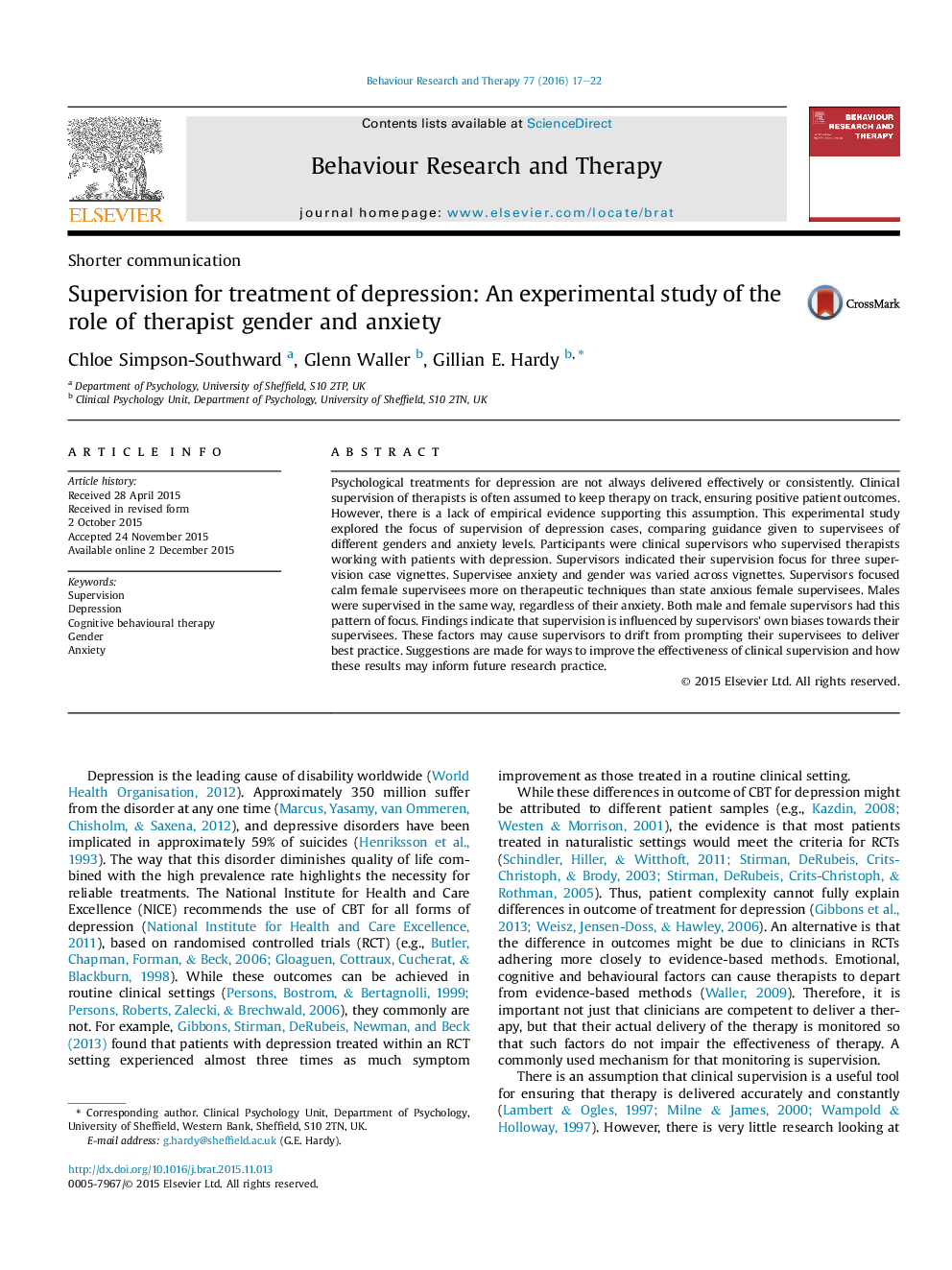| Article ID | Journal | Published Year | Pages | File Type |
|---|---|---|---|---|
| 901802 | Behaviour Research and Therapy | 2016 | 6 Pages |
•Supervisee anxiety and gender had an impact on clinical supervision focus.•Anxious female supervisees were directed more to CBT techniques than calm females.•Males were supervised in the same way, regardless of their anxiety.•Both male and female supervisors had this pattern of focus.
Psychological treatments for depression are not always delivered effectively or consistently. Clinical supervision of therapists is often assumed to keep therapy on track, ensuring positive patient outcomes. However, there is a lack of empirical evidence supporting this assumption. This experimental study explored the focus of supervision of depression cases, comparing guidance given to supervisees of different genders and anxiety levels. Participants were clinical supervisors who supervised therapists working with patients with depression. Supervisors indicated their supervision focus for three supervision case vignettes. Supervisee anxiety and gender was varied across vignettes. Supervisors focused calm female supervisees more on therapeutic techniques than state anxious female supervisees. Males were supervised in the same way, regardless of their anxiety. Both male and female supervisors had this pattern of focus. Findings indicate that supervision is influenced by supervisors' own biases towards their supervisees. These factors may cause supervisors to drift from prompting their supervisees to deliver best practice. Suggestions are made for ways to improve the effectiveness of clinical supervision and how these results may inform future research practice.
